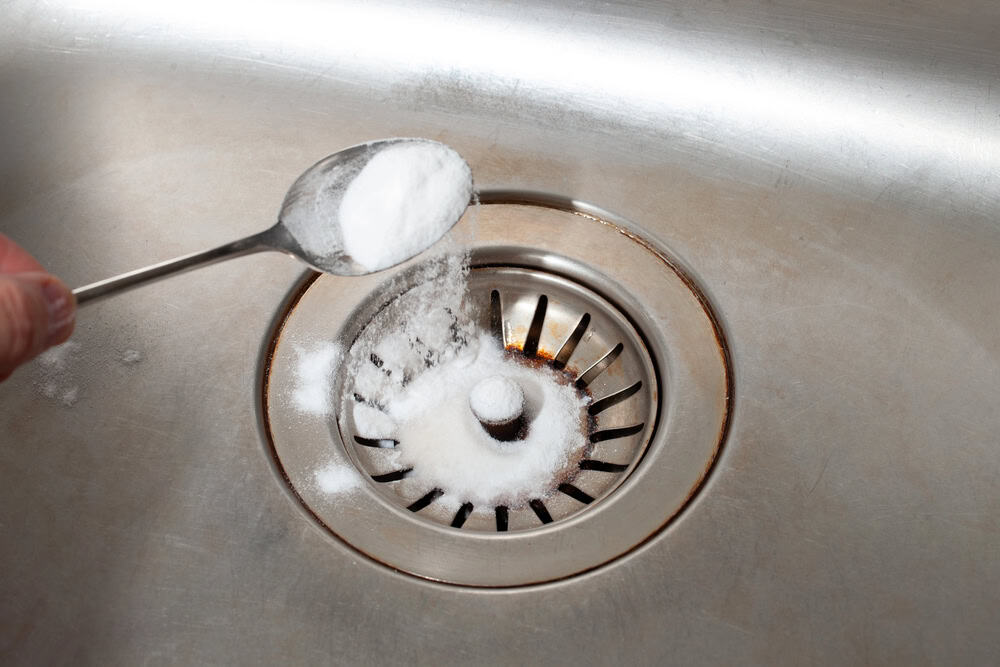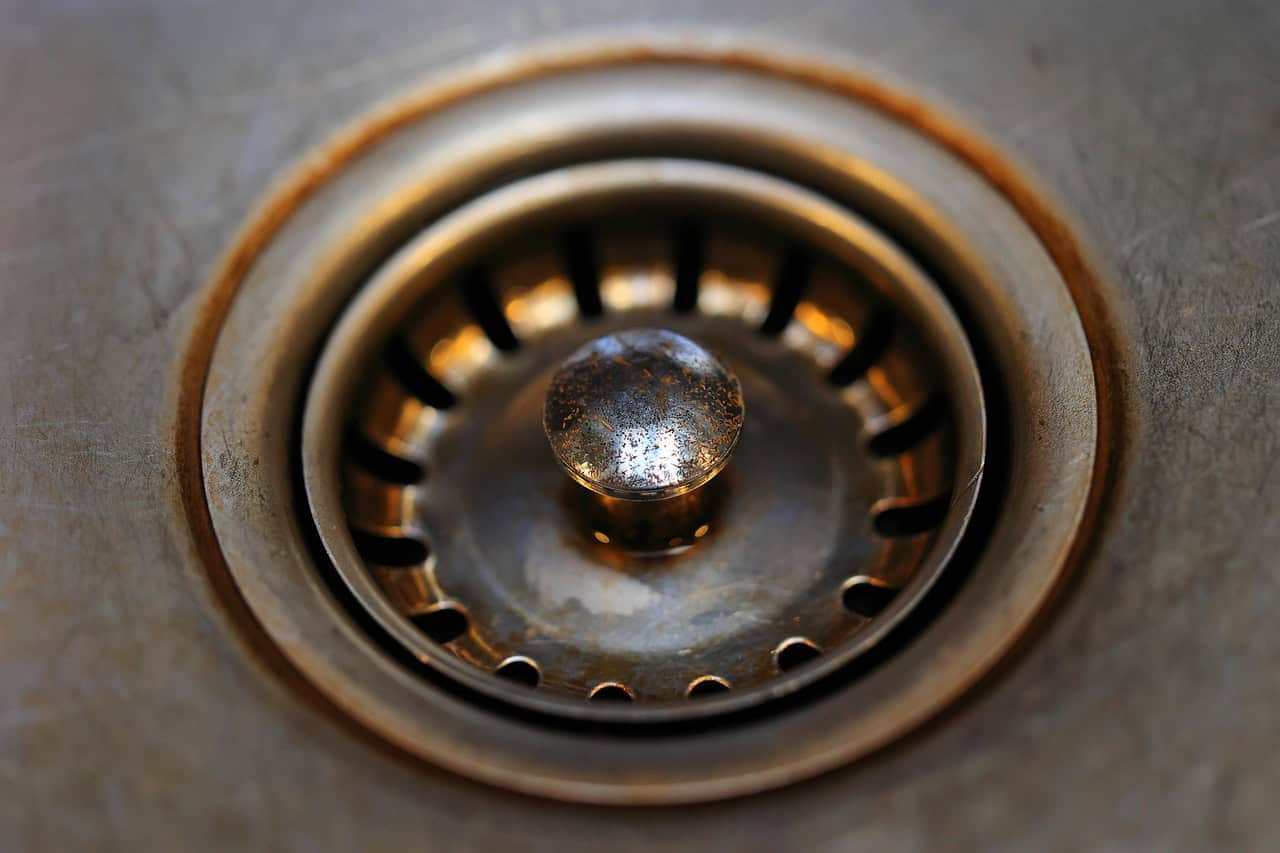A smelly drain is often the first sign that something isn’t quite right in your plumbing system. The unpleasant scent can be more than just a nuisance; it might indicate underlying problems that require immediate attention.
The foul smell from your sink or shower could stem from a variety of sources, ranging from food debris to more serious plumbing issues.
Common culprits include trapped food particles that decompose, releasing odors as they break down. Grease buildup is another usual suspect.
When grease hardens inside pipes, it can trap waste and create a breeding ground for bacteria, leading to unpleasant smells. If the drain is connected to a sink that sees a lot of kitchen scraps, it’s especially prone to these issues.
Another reason for a smelly drain could be the presence of a dry trap. Drain traps are designed to hold water and provide a barrier against sewer gases.
If the trap dries out due to lack of use, those gases can escape into your home. This is often experienced in guest bathrooms or infrequently used sinks.
Also, consider the materials your plumbing is made of. Older pipes, especially those made from certain metals, can develop rust or corrosion over time.
This deterioration can also create a problematic environment, leading to obnoxious odors. If your home has older plumbing, it might be time to evaluate its condition.
The Role of Bacteria in Drain Smells
Bacteria thrive in dark, damp spaces, making your drains an ideal habitat. When waste accumulates, these microorganisms break it down, often resulting in foul odors as a byproduct.
This odor can be particularly strong if the waste isn’t flushed thoroughly, leading to a buildup that is both smelly and harmful.
Sewer bacteria can also be a concern. If there’s a break or crack in your sewer line, these bacteria can migrate into your home through the drains, bringing with them noxious smells.
This scenario is not only unpleasant but can also pose health risks to you and your family.
Some bacteria produce gases that contribute to the smells emanating from your drains. Hydrogen sulfide, for example, is notorious for its rotten egg odor and can be produced when organic matter decomposes.
If you’re experiencing a persistent and noxious smell, it may warrant further investigation.
Regular cleaning can help keep bacteria at bay. Utilizing natural cleaning agents like vinegar and baking soda can effectively neutralize bad smells and reduce bacterial growth.
By maintaining a clean drain, you can drastically minimize unpleasant odors and keep your plumbing system functioning properly.
Identifying Potential Blockages
If your drain has taken on an unpleasant smell, it’s important to check for possible blockages. Clogs can occur in various parts of your plumbing, from the sink to the main sewer line.
A partial blockage can trap waste and contribute to bad odors, while a complete blockage can lead to more serious problems.
Hair, soap residue, and food particles are often the top offenders when it comes to clogs. Over time, these materials can accumulate and create a stubborn blockage that leads to unpleasant smells.
You may not always notice a slow drain until the smell becomes too much to bear.
Check for signs of a blockage by looking for slow drainage or standing water in your sink. If water isn’t flowing freely, it’s time to take action.
Removing a blockage doesn’t always require a plumber; sometimes, a simple plunge or drain snake can do the trick.
If the smell persists even after removing visible blockages, the issue may lie deeper in your plumbing system. In such cases, a professional inspection may be necessary to identify hidden problems that require specialized equipment or expertise.
The Importance of Regular Maintenance

Keeping your drains clean and odor-free requires regular maintenance. This doesn’t mean you should only address problems as they arise; proactive measures can save you time and money in the long run.
Regular inspections and cleanings can prevent nasty surprises from developing.
Establishing a routine cleaning schedule is beneficial. You can periodically flush your drains with hot water to dissolve grease and encourage smooth flow.
Homemade drain cleaner solutions, such as a mixture of vinegar and baking soda, can also help clear minor blockages and eliminate lingering odors.
Don’t underestimate the impact of what goes down your drains. Being mindful about what you wash away—especially in the kitchen—can help reduce the likelihood of clogged pipes and foul smells.
Avoid disposing of grease, large food scraps, and other debris in the sink.
In some cases, professional drain cleaning services can offer an extra level of thoroughness. They can use tools like hydro-jetting to clear out stubborn clogs and buildup, ensuring that your plumbing remains in excellent condition.
This type of maintenance can be especially important if you live in an older home with aging pipes.
When to Call a Professional
While some drain issues can be resolved with DIY methods, certain situations demand professional intervention. If you’ve tried various solutions but still face persistent smells or slow drainage, it might be time to consult a plumber.
Plumbers Surry Hills can provide the expertise needed to tackle even the toughest plumbing issues and get your drains back to normal. They can diagnose more complex issues that may be hidden from view.
Signs that indicate a need for professional help include frequent clogs, recurring odors, or gurgling sounds when you run water. These can signify deeper plumbing problems that DIY methods may not resolve.
A licensed plumber can use specialized equipment to address these issues safely and effectively.
Moreover, if you suspect a broken sewer line, immediate action is crucial. Sewer backups are not only malodorous but can also lead to serious health hazards.
If you notice sewage smells in your home or yard, contact a professional immediately to assess the situation.
Lastly, if you find yourself continuously battling drain odors, it may be wise to consider an upgrade. Older pipes can harbor bacteria, rust, and other issues that contribute to unpleasant smells.
Replacing them with modern, durable materials can significantly improve both function and odor.
Preventing Future Problems
To keep your drains smelling fresh, prevention is key. Simple habits can make a world of difference. For instance, using drain catchers can effectively trap hair and food particles, preventing them from entering your plumbing system.
Regularly clean these catchers to maintain optimal flow.
Another preventative measure is to run boiling water down your drains weekly. This simple but effective action helps dissolve grease and keep your pipes clear.
You might also consider pouring a mixture of vinegar and baking soda down the drain occasionally, as this combination can help neutralize odors and break down buildup.
Educate your household about what can and cannot go down the drain. Avoid flushing items like wipes, feminine products, or excessive food waste.
By being mindful of what you allow down your drains, you can significantly reduce the risk of future problems.
Lastly, consider scheduling regular plumbing inspections. Prevention is often more cost-effective than dealing with emergencies, and a professional can catch issues before they escalate.
Regular maintenance can save you headaches and keep your home smelling fresh and clean.





